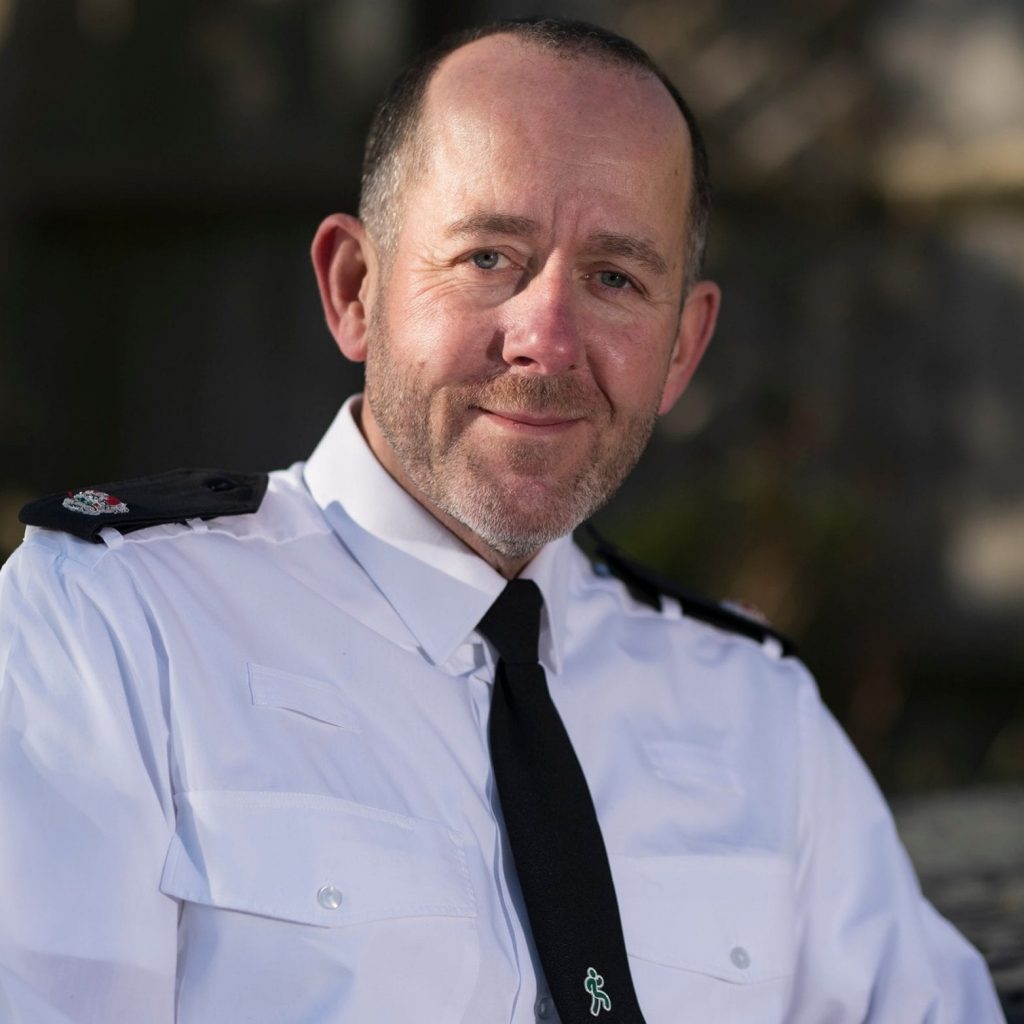by Simon Nelson
President | Disabled Police Association
Welcome to the third of my bimonthly one page blogs of this year which I publish in the hope they will stimulate thoughts and discussion without taking up too much of your busy time. Please feel free to contribute, challenge and share any comments and ideas about the points raised.

For those of you who were not aware, I had a sudden and unexpected diagnosis of stomach cancer following a routine stomach ulcer biopsy which, as a dad of three children under seven and in his thirties, felt catastrophic at that time. Although the survival rates for that form of cancer were not good, it had not spread, and I was otherwise fit and strong enough to endure successfully the six cycles of chemotherapy I started this month in 2004 and eventually, the complete removal of my stomach.
The publication of the Five Trust Tests by PurpleSpace and the start of the Safe to Say campaign has caused me to reflect on the start of my disability journey 17 years ago, and the dichotomy I experienced as a police officer living with his ‘new normal’, wishing to fit in yet needing to adapt to a different life alongside the other 86% of those with disabilities who acquire their condition during their lifetime.
After a year of treatment and recovery I was able to return to work on light duties to the service I loved. I was lucky in that I did not require further medical treatment other than a quarterly injection for the rest of my life, but of course I still had to learn to adapt to the change in my body. To be honest it took around two years to get used to new ways of eating and drinking (a sandwich feels like it used to after a Sunday roast!) but it took around a further three years to work through the impact of what had happened, the new doubts about the future and mourning the physical loss of part of me. A digestive system with less capacity and efficiency combined with less stored energy inevitably leads to increased fatigue as well as constant borderline anaemia and dehydration. Unsurprisingly this can really affect my levels of concentration at times as well as other ways in which I think or speak, but I did not refer to myself as being ‘disabled’.
No one would have guessed from looking at me that I was disabled according to the Equality Act, and as with the many thousands of others with less-visible conditions (we do not ‘hide’ them) we want to fit in and ‘belong’ whilst being afforded compassion and support in order to thrive at work. My home Force has come such a long way from then when disability was almost exclusively associated with illness and the potential for absence. I returned to work and a meeting with Occupational Health was only to agree my phased return to work plan with no discussion about how my life had changed. At times I was mocked when I needed to eat in long meetings, and on the occasions when I started to experience crippling cramps around my back and abdomen I would pretend I was leaving to make an urgent call so I could pace an empty office somewhere for 45 minutes waiting for the pain to ease. One of the most disabling circumstances we experience is not feeling able to go to work as our authentic selves. I was lucky that a few individuals believed in me and encouraged me to become an active operational commander even during the many moments I continued to doubt my credibility and resilience… and still occasionally do.
At that time the Force had an identified ‘Disability Champion’ whose primary interest was disability in the community and there was minimal knowledge or interest in reasonable adjustments, so I knew that being open as being ‘disabled’ could change how I might be perceived and treated – accepting that I hated that label and believed it could affect my future career, I needed to work as my true self. I also wished to play an active part in supporting others who had diverse abilities yet restricted by others who were distracted by what those colleagues were less able to do. This led to me becoming the Chair of our local network, and eventually the national lead of our Association, which is immense privilege. We have a way to go in terms of disability being valued as much as some other diverse characteristics and in some meetings I still have to push to make our voice heard, feeling at times like I am the wasp at the picnic! However, we are making progress.
The Five Trust Tests should be commended to all organisations and clearly sets out what it takes to secure the confidence of their staff , including active support for staff networks, so those who are mentally or physically different can dare to share their identity of living (not necessarily suffering) with those conditions (not necessarily illnesses). It takes more than identified champions, policies and campaigns to achieve that and police forces will benefit from being seen to ‘walk the talk’ before those staff trust there is a psychologically safe environment within which they can bring their true selves to work and be supported to fulfil their potential. We have the opportunity to ensure others are now supported and included, and I will certainly continue to play my part by laying a path for others. ∎
